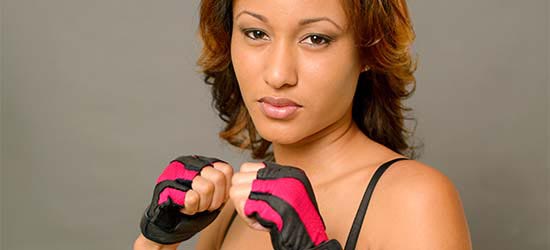Healthy breasts are essential to a woman’s wellbeing. From heralding the beginning of puberty, or being a sign of womanhood and sexuality to the sustenance of a new born, the importance of breast health cannot be overstated.
The concerns about breast health vary according to age, personal and family history and many other factors. Yet, across all demographics, the number one concern for most women is breast cancer. Recently, breast cancer has been at the forefront of our minds as sports stars and other celebrities have been diagnosed with the condition and have been relatively open about their diagnosis and treatment. Many different things come into play when assessing your risk of developing breast cancer. However, knowing these risk factors and applying the appropriate lifestyle changes can help increase your chances of maintaining healthy breasts.
Know your family history
In about 15 percent of breast cancer cases, there is a family history of the disease. If you have one first-degree relative who had breast cancer, your lifetime risk doubles. There is also a gene mutation that can be tested for that is linked to ovarian and breast cancer. Knowledge of your family history and genetic risk will help you make choices re screening and even management if diagnosed.
Get screened
Although most commonly diagnosed in the post menopausal woman, breast cancer can strike in the teen years and early 20s. Therefore women of all ages should do monthly breast self-examinations. It is important to learn the proper technique and to appreciate what the breasts usually feel like so that any changes can be promptly identified and investigated. The annual check-up should include a breast examination in women in their 20s and older and routine yearly mammograms should be done in women beyond 40 years. For some women, an ultrasound may also be necessary. Women with a family history of breast cancer should begin screening 10 years prior to the family member’s age of diagnosis.
Breast Feed
Having children and starting child bearing in your 20s have been linked to the reduced likelihood of developing breast cancer. Mothers who breast feed further reduce their risk.
Maintain a healthy weight
Being overweight or obese can increase your risk of developing the disease as well as reduce your risk of surviving it. Many reasons have been posited for the increase in the prevalence of certain cancers in obese persons.
Fat cells produce estrogen, high levels of which have been associated with an increased risk of breast cancer. Because obese women have more fat tissue, their estrogen levels are higher, potentially leading to more rapid growth of breast tumors. Excess fat is also linked to an excess in other hormones such as insulin which studies suggest also increases breast cancer risk.
Stay Active
Aim to exercise for 45 minutes to an hour three to five days a week. Regular exercise may help prevent the disease by warding off obesity as well as boosting immune functions. In one study, women who exercise over 10 hours a week were found to have a 30 percent reduction in breast cancer compared to women who have a sedentary lifestyle.
Limit alcohol intake
Research has shown that two or more drinks a day could increase breast cancer risk by over 20percent. If you are in the habit of having a glass of wine with dinner, limit it to one and switch to red if that’s not already your wine of choice. Resveratrol, found in red wine, and the skin of grapes may help to reduce your estrogen levels, which in turn may reduce your risk.
Limit alcohol intake
Research has shown that two or more drinks a day could increase breast cancer risk by over 20percent. If you are in the habit of having a glass of wine with dinner, limit it to one and switch to red if that’s not already your wine of choice. Resveratrol, found in red wine, and the skin of grapes may help to reduce your estrogen levels, which in turn may reduce your risk.
Eat healthy
A low-fat diet can do a lot to reduce your risk of breast cancer as you’re more likely to maintain a healthy weight if you eat well. Also the micronutrients found in fruits and vegetables will help boost your immune system; for even more protection, add some cruciferous vegetables such as broccoli, to your plate. They contain sulforaphane, which is believed to help prevent cancer cells from multiplying. For an extra dose of cancer-fighting power, have these vegetables raw.
Dispel the myths
Benign (non cancerous) lumps in the breasts such as fibroadenomas usually diagnosed in the 20’s and 30’s do not increase your risk of developing breast cancer in the future. Breast cancer has not been linked to trauma! No studies have been able to prove that implants increase one’s risk of developing breast cancer either! However, according to the type of filler used and their positioning, some implants can make reading a mammogram difficult, and therefore cancer detection is more challenging. Antiperspirant use is also off the hook as using antiperspirants that contain aluminium has not been proven to increase the risk of breast cancer.
The kind of support your bra lends and whether or not it has an underwire is not linked to the development of breast cancer. In fact, firm bras may not necessarily impact sagging of the breasts; however, wearing a supportive sports-bra while exercising can reduce the sagging caused by the stretching of the ligaments under the breasts.
The key to maintaining healthy breasts is simple! Know your risk, see your doctor, screen appropriately and live well.



